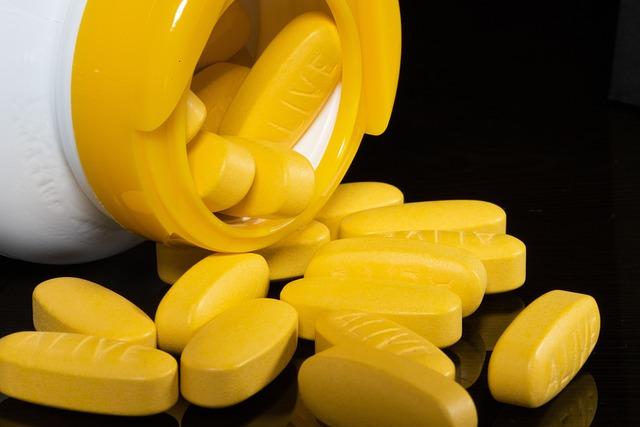In a world where wellness trends come and go with the speed of a social media scroll, electrolyte supplements have emerged as a popular choice for many seeking to boost hydration and enhance physical performance.From athletes pushing their limits to health-conscious individuals striving for optimal hydration, these colorful packets and vibrant drinks have become a staple in countless routines. but amidst the buzz and convenience, a critical question looms: Are these supplements safe for daily use? In this article, we’ll delve into the science behind electrolytes, examine the potential risks and benefits, and provide you with the essential information you need to make informed decisions about incorporating these products into your daily life. Whether you’re an avid gym-goer or simply curious about hydration strategies, join us as we explore the nuances of electrolyte supplementation and its role in your wellness journey.
Understanding Electrolyte Balance and Its Importance
Maintaining the right balance of electrolytes is crucial for our body’s overall health and functionality. These essential minerals, including sodium, potassium, calcium, and magnesium, play a vital role in regulating hydration, nerve function, and muscle contractions. A deficiency or excess of these electrolytes can lead to adverse health effects, such as muscle cramps, fatigue, and heart rhythm disturbances. Consequently, understanding how factors like diet, physical activity, and hydration levels influence this balance can definitely help individuals make informed decisions regarding their electrolyte intake.
It’s crucial to recognize that not everyone requires electrolyte supplements daily, especially if they consume a balanced diet rich in fruits, vegetables, and whole grains. However, those engaging in intense physical activity or experiencing dehydration due to illness may benefit from additional electrolyte replenishment. Here are some key points to consider:
- Dietary Sources: Fruits (like bananas and oranges), vegetables (such as spinach and potatoes), and dairy products contribute important amounts of necessary electrolytes.
- Signs of Imbalance: Symptoms like cramping,dizziness,or excessive fatigue may indicate the need for electrolyte adjustment.
- Consultation: Always consult a healthcare professional before introducing supplements to ensure safety and suitability for your specific needs.
| Electrolyte | Functions | Sources |
|---|---|---|
| Sodium | Maintains fluid balance | salt, processed foods |
| Potassium | Regulates nerve function | Bananas, potatoes, spinach |
| Calcium | Supports bone health | Dairy, leafy greens |
| Magnesium | Muscle function and energy production | Nuts, seeds, whole grains |

Examining the Types of Electrolyte Supplements Available
Electrolyte supplements come in various forms, each offering distinct benefits suitable for different lifestyles and health needs. The most common types include:
- Powders: Typically mixed with water for hydration,these are versatile and can be easily adjusted for dosage.
- Tablets: A convenient option for on-the-go supplementation, tablets frequently enough provide concentrated doses of essential minerals.
- Liquids: These are ready-to-drink solutions that deliver immediate hydration and electrolyte replenishment.
- Gels: Ideal for athletes, these gels combine carbohydrates with electrolytes for rapid energy and hydration during intense activities.
Additionally, many electrolyte supplements contain varying combinations of key minerals like sodium, potassium, calcium, and magnesium, each playing a crucial role in bodily functions. Here’s a quick overview of the benefits associated with each:
| Electrolyte | Benefits |
|---|---|
| Sodium | Regulates fluid balance and blood pressure. |
| Potassium | Supports muscle function and nerve signaling. |
| Calcium | Critically important for bone health and muscle contraction. |
| Magnesium | Aids in energy production and muscle relaxation. |

Assessing Safety: Daily Use and Potential Risks
when considering the daily use of electrolyte supplements, it’s vital to evaluate both their benefits and potential risks. These supplements can be particularly beneficial for individuals who engage in high-intensity workouts or heat exposure, helping to replenish lost minerals such as sodium, potassium, and magnesium. Though,overconsumption can lead to negative health effects.Some symptoms of excessive intake include:
- Dehydration – Contrary to their purpose, taking too many electrolytes without adequate water can worsen dehydration.
- Kidney Strain – High levels of electrolytes can put pressure on kidney function, particularly in those with pre-existing conditions.
- Imbalance – Too much of one electrolyte can lead to imbalances, causing issues like muscle cramps, fatigue, or irregular heart rhythms.
To better understand how these supplements fit into daily health routines,consider the following table that outlines recommended daily intake versus potential risk factors:
| Electrolyte | Recommended Daily Intake | Potential Risks of Excess |
|---|---|---|
| Sodium | 2,300 mg | Hypertension,heart disease |
| Potassium | 4,700 mg | Hyperkalemia,muscle weakness |
| Magnesium | 400-420 mg | Diarrhea,nausea |
Understanding these details offers a pathway to informed decisions on using electrolyte supplements daily while recognizing the importance of balance and moderation. Always consult with a healthcare provider before incorporating new supplements into your routine,particularly if you have underlying health conditions or are taking other medications.

Making Informed Choices: recommendations for Supplementation
when considering electrolyte supplements for daily use, it is indeed essential to take a few factors into account to ensure they align with your health needs and lifestyle.First, be mindful of your hydration levels and overall diet. Whole foods such as fruits and vegetables, along with a balanced diet, often provide sufficient electrolytes without the need for supplementation. If you find yourself sweating extensively due to exercise, heat, or illness, replenishing lost minerals can be beneficial. In these scenarios, look for supplements that offer a clear breakdown of their contents, focusing on key electrolytes like sodium, potassium, calcium, and magnesium.
Always opt for high-quality supplements that prioritize natural ingredients and minimize artificial additives. Here are some compelling options to consider:
- Powdered Electrolytes: These can be mixed into water and are customizable by concentration.
- Electrolyte Tablets: Convenient for on-the-go situations, these are easy to store and take.
- Ready-to-Drink Solutions: Ideal for immediate consumption, these frequently enough come pre-packaged with essential minerals.
For a thorough evaluation, refer to the table below to see a comparison of popular electrolyte supplements available:
| Brand | Form | Main Electrolytes | Calories per Serving |
|---|---|---|---|
| Brand A | Powder | Sodium, Potassium | 15 |
| Brand B | Tablet | Calcium, Magnesium | 0 |
| Brand C | Ready-to-Drink | Sodium, Chloride | 100 |
Future Outlook
navigating the world of electrolyte supplements requires a balanced understanding of both benefits and potential risks. While these products can effectively replenish essential minerals lost during intense exercise or in hot climates, daily use demands careful consideration. Individuals should assess personal health needs and consult with healthcare professionals to ensure safety and appropriateness. Ultimately, integrative wellness comes from a holistic approach—one that combines mindful hydration, a nutrient-rich diet, and an awareness of how supplements fit into your overall lifestyle. As with any aspect of health, informed choices lead to better outcomes. So, whether you’re an athlete pushing your limits or simply someone looking to maintain balance, stay curious and knowledgeable about the supplements you choose. Your health is worth it.



